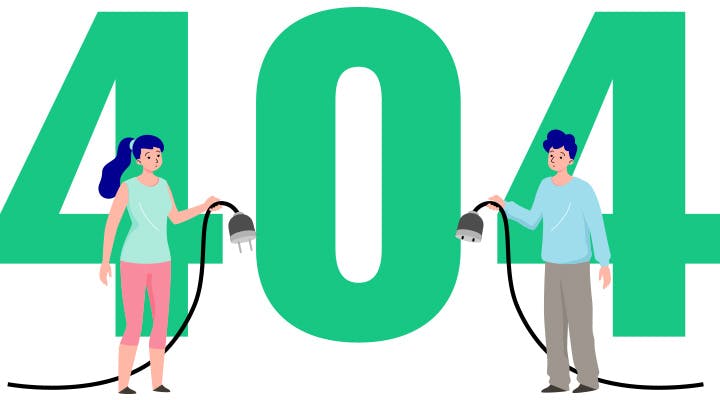Understanding Link Redirection: Purpose, Applications, and Managing Obsolete Links
Ever wondered why some web links take you on a detour before reaching the destination? It's all about link redirection, a web development and digital marketing mechanism worth knowing. In this article, we break it down — from what exactly it was originally intended for to how to use it to deal with outdated links. Stick around for a dive into the world of redirecting web links!

In the interconnected world of the internet, web links serve as bridges that allow us to navigate seamlessly from one web page to another. When you click on a link and it transports you to a new page, you're seeing the end result of a network protocol handling a universal resource locator (URL), or simply put, a web link. Sometimes, these links may not lead you directly to the target destination, but instead, you are "redirected" to another page. This mechanism, known as link redirection, is a fundamental concept in the world of web development and digital marketing.
What Is Link Redirection?
Link redirection is a technique that sends users from the URL they initially clicked on to a different URL. This is typically done using a server configuration, where the server responds with a specific HTTP status code indicating the redirection, although it can also be done via HTML meta-refresh tags or JavaScript.
The Purpose of Link Redirection
There are several reasons why link redirection might be implemented:
- Website or Page Restructuring: If the website's structure has been modified, link redirection helps ensure that users and search engines find the new pages instead of landing on 404 error pages.
- URL Simplification: Sometimes, URLs can be long, complex, or hard to remember. A redirect allows the creation of a simpler, more memorable URL (like yohn.io/go/referrals instead of https://www.yohn.io/blog/introducing-the-yohn-io-referral-program-for-marketing-professionals/) that leads to the original, more complex URL.
- Tracking and Analytics: Redirects are often used to track clicks, measure traffic sources, and understand user behavior. The obtained data can be critical for refining marketing strategies.
- A/B Testing: Redirection can be used to send different users to different versions of a page to assess which performs better.
- Domain Change or Merging of Websites: When a website moves to a new domain, or when multiple websites are consolidated into one, redirection is essential to retain the SEO value of the original pages and prevent broken links.

When Should Link Redirection Be Applied?
Link redirection should be used judiciously as improper use can lead to SEO issues or poor user experiences. However, it is advisable to use redirection in the following scenarios:
- When a webpage is moved or deleted: To avoid the infamous "404 Not Found" errors, you should set up a redirect from the old URL to the relevant page on your current site.
- When you change your domain: If you've moved your website to a new domain, use a 301 redirect (a permanent redirect) to send users and search engines to your new site.
- When running marketing campaigns: Use redirects to track the effectiveness of your campaigns and collect data on user behavior. Use short URLs to make the links you share online or offline concise and easier to remember.

Dealing with Obsolete Links
Sometimes, an active link may lose relevance. For instance, a product page for an item that's no longer available, or a promotional page for an event that's already occurred. In such cases, instead of letting the link lead to a dead end, you can redirect it to a related page or to a generic page (like a homepage or a product category page).
Let's consider an example: Suppose the short URL "yo.hn/new-release" was originally linked to a product page for a limited edition item. Once the item is out of stock, the link technically loses its relevance. Instead of leaving the inactive destination URL in place, the site administrators could set up a redirect from "yo.hn/new-release" to a page showcasing similar products or to the main product catalog page. This way, anyone who clicks on "yo.hn/new-release" would still reach a useful destination, maintaining a positive user experience and keeping potential customers engaged.
In conclusion, link redirection is a powerful tool in website management and digital marketing. It helps ensure seamless user navigation, maintain search engine rankings, and gather valuable user behavior data. However, it's essential to use it responsibly. Excessive or improper use of redirection can lead to a confusing user experience or dilute the SEO value of your pages.
In cases where the relevance of a link changes, for example, due to product availability or event expiration, a well-planned redirect strategy can convert potentially frustrating user experiences into positive ones and prevent traffic loss. This also helps maintain the integrity of external links to your site, such as those shared on social media or other websites, which may not be updated as quickly as your own site.
When implementing link redirection, ensure that the destination the users are redirected to still provides value relevant to the original link. For instance, redirecting users who are looking for a specific product to a related product category is reasonable. However, redirecting them to an unrelated page might result in confusion and could negatively affect your website's bounce rate.
Furthermore, pay attention to the type of HTTP redirect you use. For permanent changes, a 301 redirect is advisable as it informs search engines that the original page has permanently moved, helping preserve your SEO rankings. For temporary situations, like A/B testing or temporary promotional pages, a 302 redirect, indicating a temporary change, is more appropriate.

Lastly, monitor your redirects regularly to ensure they're still necessary and functioning correctly. Broken or unnecessary redirects can harm your website's loading speed and performance.
Link redirection, when properly applied, can greatly enhance the navigational efficiency and overall experience of your website's users. By understanding its purpose and learning how and when to apply it, you can optimize your website's performance and get the most out of your digital marketing efforts.